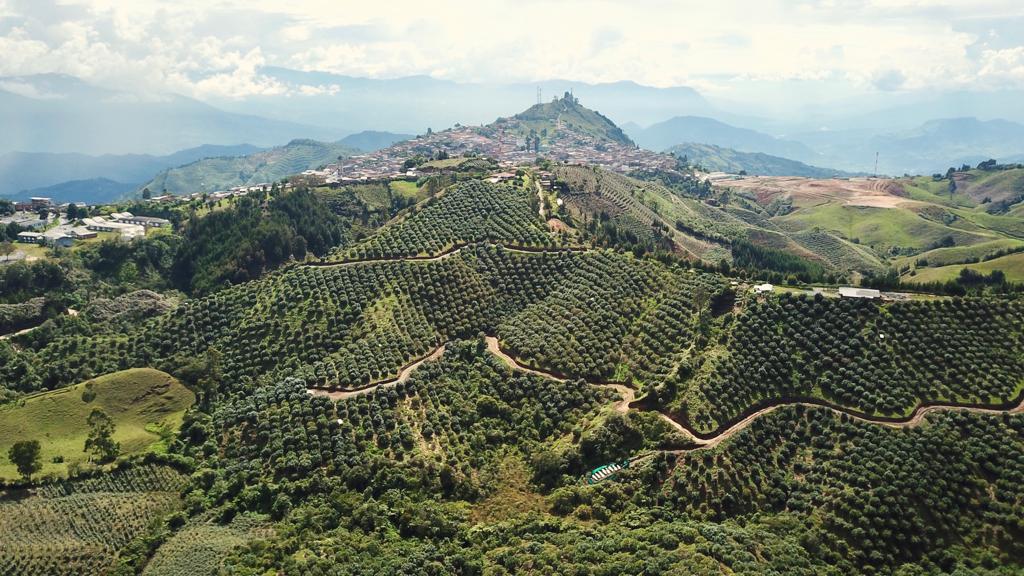Colombia works to increase sustainable Hass avocado production
In 2019, Colombia closed one of its best years as a global supplier of Hass avocados, with over 1,000 hectares bearing an international seal representing sustainable environmental and social practices.
In addition to increasing 2019 export sales to the United States and the European Union by 434% and 34% respectively, Colombia sent its first containers to Japan and is awaiting entry into the South Korean market and the first shipment to China.
“Internationalization has a positive effect on Colombian products because it promotes competitiveness and the adoption of best practices; the Hass avocado is one of the best examples. As a result of exporting, more companies now realize the importance of ensuring that their impact on communities and the environment is positive. This fruit in particular is one of the main products of focus in order to build a more sustainable country,” stated Flavia Santoro, president of ProColombia—the government agency that promotes non-mining and non-energy exports.
According to figures from NaturaCert—an organization that offers verification and certification services to ensure that sustainable Colombian agricultural products meet national and international standards—20,000 hectares of avocados were certified with the Rainforest Alliance seal worldwide in 2019, with Colombia showing one of the largest increases.
“Colombian Hass avocado certifications have been increasing at a very rapid rate,” stated NaturaCert Executive Director Sandra Restrepo. “This confirms that companies in this sector are increasingly committed to carrying out sustainable processes. The Rainforest Alliance certified 241 hectares in Colombia in 2018, and at the close of 2019, almost 1,000 hectares had been certified. Likewise, in 2019, GLOBALG.A.P. registered 73 Colombian farms, with 952 certified hectares in total,” she added.
Restrepo explained that there is great potential to increase sustainability certifications for avocados in the coming years, given the commitment shown by businesses as well as the demands of markets such as the United States and Europe regarding environmental and social sustainability, as well as food safety.
Moreover, Jorge Enrique Restrepo—the executive director of Corpohass, a union of Colombian Hass avocado producers and exporters—stated, “We have held several informational sessions about standards and certifications, such as GLOBALG.A.P. and the Rainforest Alliance, for producers in various Colombian departments. The aim of these sessions is to create awareness and transfer knowledge regarding the requirements demanded by the world’s leading markets.”
The Corpohass director added,
“So far, almost 100% of Colombian avocado crops have been planted where forests have not existed for many years, expanding into pastures formerly used for raising and fattening cattle.”
The GLOBALG.A.P. certification refers to food safety and regulation of chemicals in the fruit. On the other hand, the Rainforest Alliance seal considers staff recruitment, as well as social and environmental standards, assuring deforestation-free practices and no water or soil contamination. Parallelly, SMETA certifications focus on ethical business practices, while the SPRING seal focuses on sustainable water management.
Leonardo Ferrer Narváez, GLOBALG.A.P. Technical Key Account Manager for Colombia, stated, “There are currently about 700 avocado farms certified in GLOBALG.A.P., an increase of 30% from 2018 to 2019. This will surely continue to grow, because international markets such as Europe and the United States demand avocado production that includes sustainable practices and these certifications. In addition, Colombia’s fertile land requires few irrigation systems, and it has a small ecological footprint due to tree planting.”
Additionally, company representatives say that these certifications have become guarantees for accessing better markets. Among them is Ricardo Mejia Hernandez, general manager of Fruty Green SAS. His company was certified by GLOBALG.A.P. and the Rainforest Alliance for both its crops and packing facility in Antioquia and Risaralda.
“Apart from quality assurance, these certifications have become an important differentiating item, because they offer the possibility of selling avocados in more markets. In our case, we were able to enter very demanding supermarkets in England and Germany thanks to these certification seals. In addition, the benefits include producing cleaner fruit with more rigorous agrochemical regulations and heightened awareness about caring for the environment, including trees, bodies of water, and wildlife,” Mejia Hernandez explained.
Luis Guillermo Rangel—general manager of Agrícola Ocoa Colombia S.A.S., a company that receives Chilean foreign investment—stated, “Our crops in Antioquia have GLOBALG.A.P. and Rainforest Alliance certifications, which have been quite important in meeting the demands and standards of buyers from the United States and Germany. This gives us an advantage and ensures our compliance with safety, environmental, and labor protocols for our employees.” Rangel added that the certifications will assist them in reaching Japan, China, Argentina, and Canada.
A promising future
In 2019, Colombian avocado exports reached US $90 million, an increase of 42%, according to ProColombia’s analysis of National Department of Statistics figures. The main buyers were the Netherlands, the United Kingdom, Spain, Belgium, the United States, and France.
Although Colombia is an emerging supplier just beginning to gain prominence in international markets, the country boasts several advantages.
A ProColombia study indicates that, in addition to companies who operate with environmental and social awareness, Colombia can offer avocados essentially year-round and has ample land—approximately 633,000 hectares—that is very well-suited for cultivating the green fruit.



